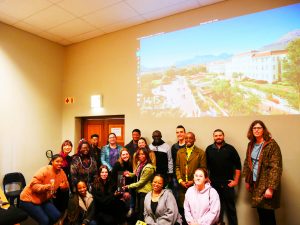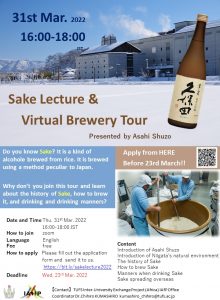[Recruitment & Report] Sake Lecture & Virtual Brewery Tour (31st March)
“Sake” is a traditional Japanese alcoholic drink brewed from rice.This event is open to our program partner universities, Protestant Institute of Arts and Social Sciences (Rwanda), University of Ghana, University of Zambia, University of Pretoria, Stellenbosch University, Kyoto University and TUFS. The students will learn together about Sake.
In this seminar, you will learn the history of Sake, how to brew Sake and manners when drinking Sake by quiz, virtual tour and demonstrations.
Date: Thu. 31st Mar. 2022, 16:00-18:00 JST/ 9:00-11:00 Rwanda, Zambia and South Africa Time/ 7:00-9:00 Ghana Time
How to Join: Zoom
Language: English
Fee: free
Capacity: no limitation
Content: Introduction of Asahi Shuzo, Introduction of Niigata’s natural environment, The history of Sake, How to brew Sake, Manners when drinking Sake, Sake spreading overseas
How to apply: Please fill out the application form and send it to us.
https://bit.ly/sakelecture2022 (Deadline: Wed. 23rd Mar. 2022) *Deadline has been extended to Tue. 29th Mar.
TUFS HP: http://www.tufs.ac.jp/english/student/NEWS/education/220304_1.html
Report
Asahi Shuzo responded to our request carefully and prepared for the seminar. The presentation, which included demonstrations and virtual tour in addition to slides, was very popular.
There were 14 participants from Rwanda, 13 from South Africa, 1 from Zambia and 18 from Japan.
The session began with an introduction to Asahi Shuzo and its signature product, Kubota, followed by talks on the natural environment of Niigata and the role sake plays in Japanese culture. Next, participants learned about the history of sake and experienced sake brewing on a virtual tour. Finally, we learned the manners of drinking sake through demonstrations and quizzes, expanding their knowledge of sake that is spreading overseas.
There were virtual tours, demonstrations of Sake drinking, quiz, and many other ideas that participants could enjoy, and they actively participated and asked questions. In the question section, there were questions such as “Is the drinking of sake after work considered a bonding experience between colleagues to improve work environment(SU student)?”, “To what extent does you assure sake consumers in terms of body strength? because some beverages can be consumed and cause people to commit crimes. as peace Student I’m curious?(PIASS Student)”, “How long can the aging be for sake? What are the oldest sakes available in Japan?(SU student)”. Many of the participants from Stellenbosch University in South Africa were students studying winemaking in the department of viticulture and oenology, and they were keenly interested in the difference in production methods from sake.
example of the feedbacks:
“The sake lecture was very interesting, I personally I enjoyed the way they have explained it. it was very nice to attend this lecture together with the staff members of sake brewery. it was interested to hear that it is made up from rice which was interesting and very surprised to me because in Rwanda we used rice for eating only. the challenge was, we haven’t test it yet. what I learn from this sake lecture& virtual brewery tour is rice can be used to make other product not only for eating but also for drinking. (PIASS student)”
“The lecture was extremely informative and I especially enjoyed the variety of topics discussed. I enjoyed learning about the production and different classifications of sake but also about the distribution and consumption habits/etiquette. Since I am educated in the production of various types of alcoholic beverages, especially beer and wine, the lecture has left me motivated to perhaps do further research on my own into the detailed production of sake. I will definitely enjoy sake more now that I have a better appreciation of the effort and details that goes in to making it. (SU student)”
Thank you very much Asahi Shuzo for a very valuable learning opportunity!!
participants 46
(Protestant Institute of Arts and Social Sciences 14, Stellenbosch University 13, University of Zambia 1, Kyoto University 4, TUFS 14)
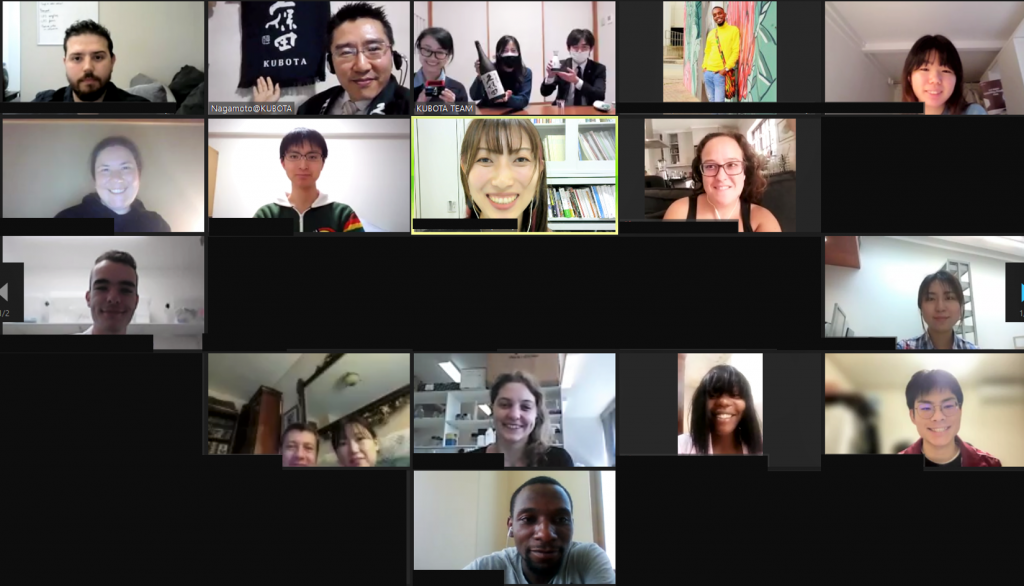
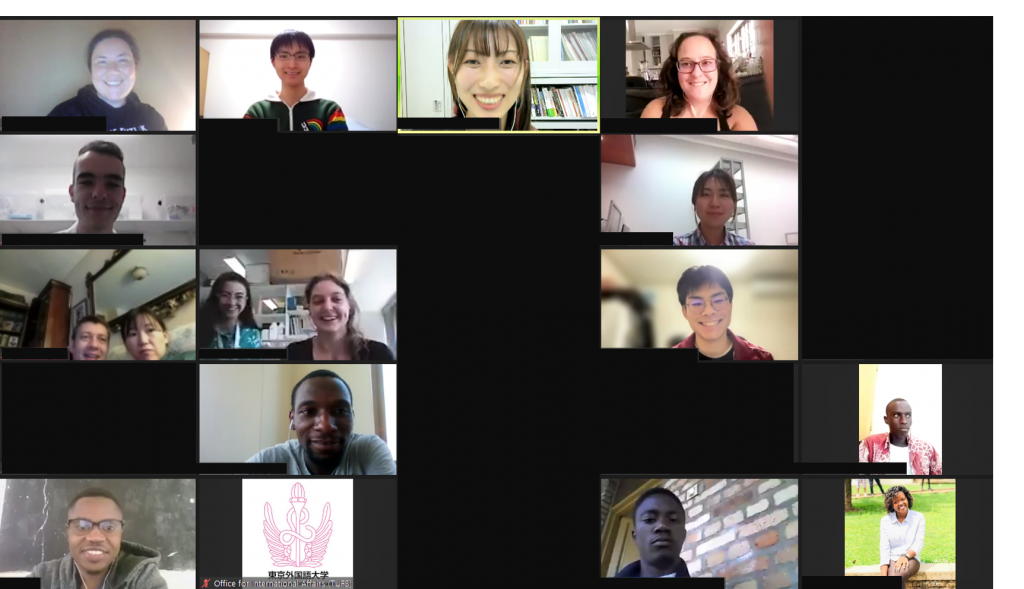
Postscript
Our project coordinator traveled to Stellenbosch University in September 2022. On that occasion, she had an exchange meeting with the participants of the sake seminar.
The students tasted Asahi Shuzo’s “Kubota” brought by the coordinator, smelling, observing the color, and talking about the difference between it and the wine they usually study.

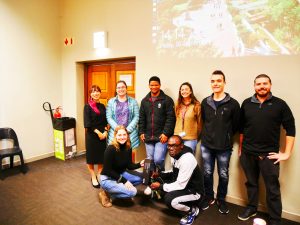
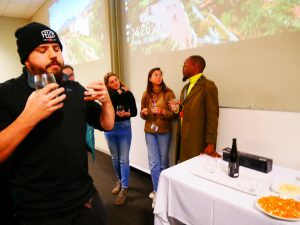

Students, faculty and staff gathered at the project briefing enjoyed “Kubota” together.
